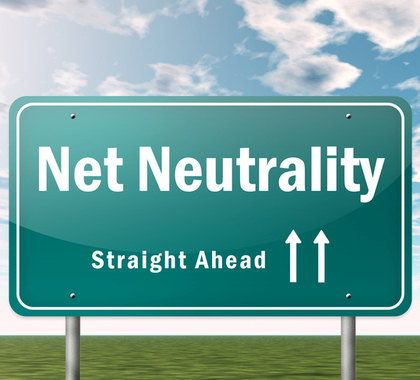The Federal Communication Commission’s (FCC) recent vote to begin the process of undoing an Obama-era power grab is the right solution for putting consumers—not lobbyists and lawmakers—in the innovation driver’s seat.
On May 18, the FCC voted to begin the process of rolling back a 2015 policy in which the FCC decided it possesses the legal authority under the Telecommunications Act of 1934 to regulate internet service providers (ISPs) using rules intended for phone companies. The rules, commonly referred to as “net neutrality,” were initiated by former FCC Chairman Tom Wheeler, who served under President Obama.
The May vote doesn’t repeal the rules, but it does put the FCC on the path toward reform. Thanks to the recent vote, the FCC will solicit comments from the public and consider experts’ advice before crafting a final rule, which should occur later in 2017.
By getting government out of the business of telling ISPs how to run their servers, current FCC Chairman Ajit Pai is working hard to undo net neutrality, putting consumers back in charge of how the internet—and the businesses responsible for building and maintaining the countless millions of internet connections and switches powering the internet—should operate.
Through the net-neutrality rules, in order to better control the internet, the FCC put five unelected government regulators between consumers and internet service providers, drastically expanding the FCC’s power. By regulating the internet as though it is a utility, such as an electric company or a water company, the FCC inserted itself into the middle of the data transactions made between every recipient and sender, of every bit and byte.
The fight over net neutrality was never about digital egalitarianism, although that’s what its advocates continue to claim. Its purpose was to restrict consumers’ choices and prohibit something called “paid prioritization,” which hurts consumers in the name of helping them.
Paid prioritization is the technical term used to describe an agreement between a content provider and a network owner to allow the provider’s data to travel on less-congested routes in exchange for an agreed-upon fee.
When networks are clogged with data during high-traffic times, prioritization agreements allow consumers to receive requested data faster. Netflix and other high-volume content providers have already begun negotiating such deals.
All kinds of data—e-mails, cat videos, that Instagram photograph of your sandwich—travel over the internet, but some data types are more tolerant of delays or temporary congestion. For instance, the bits comprising an e-mail don’t need to arrive at a recipient’s computer all in the same order they were sent. Other kinds of data, primarily video, are less tolerant of delays. Receiving the data bits in the wrong order or at the wrong time can cause distortions, stutters, and other playback problems.
If they choose to do so, content companies, such as Hulu and Netflix, can choose to pay ISPs a little bit extra to have their content bits delivered to consumers faster than some other company, such as Amazon.
Just like paying a little more to take a well-maintained toll road instead of the clogged government-funded highway gets you to your destination quicker and with less frustration, paid prioritization allows Netflix to satisfy your Stranger Things binge with fewer problems and greater reliability.
Net neutrality prevents upgrading for better service, forcing ISPs to treat all data alike, ignoring the different needs of the various kinds of data traveling over the internet. Wheeler’s proposal stuck your favorite Netflix stream on the same slow road as your least-favorite e-mail from work, preventing the data you want from getting to you when you want it and how you want it.
As Pai noted in a 2014 memo, when he was a FCC commissioner, “Title II only authorizes the FCC to prohibit ‘unjust or unreasonable discrimination’ and both the Commission and the courts have consistently interpreted that provision to allow carriers to charge different prices for different services.”
Decades of internet and networking innovation, enabled by the government’s earlier hands-off approach, has slowed to a crawl because of Wheeler’s rule, but Pai’s quest to reduce regulations on internet providers and other telecommunications companies could once again get government out of the way and turbocharge consumers’ internet experience.
[Originally Published at the American Conservative]




